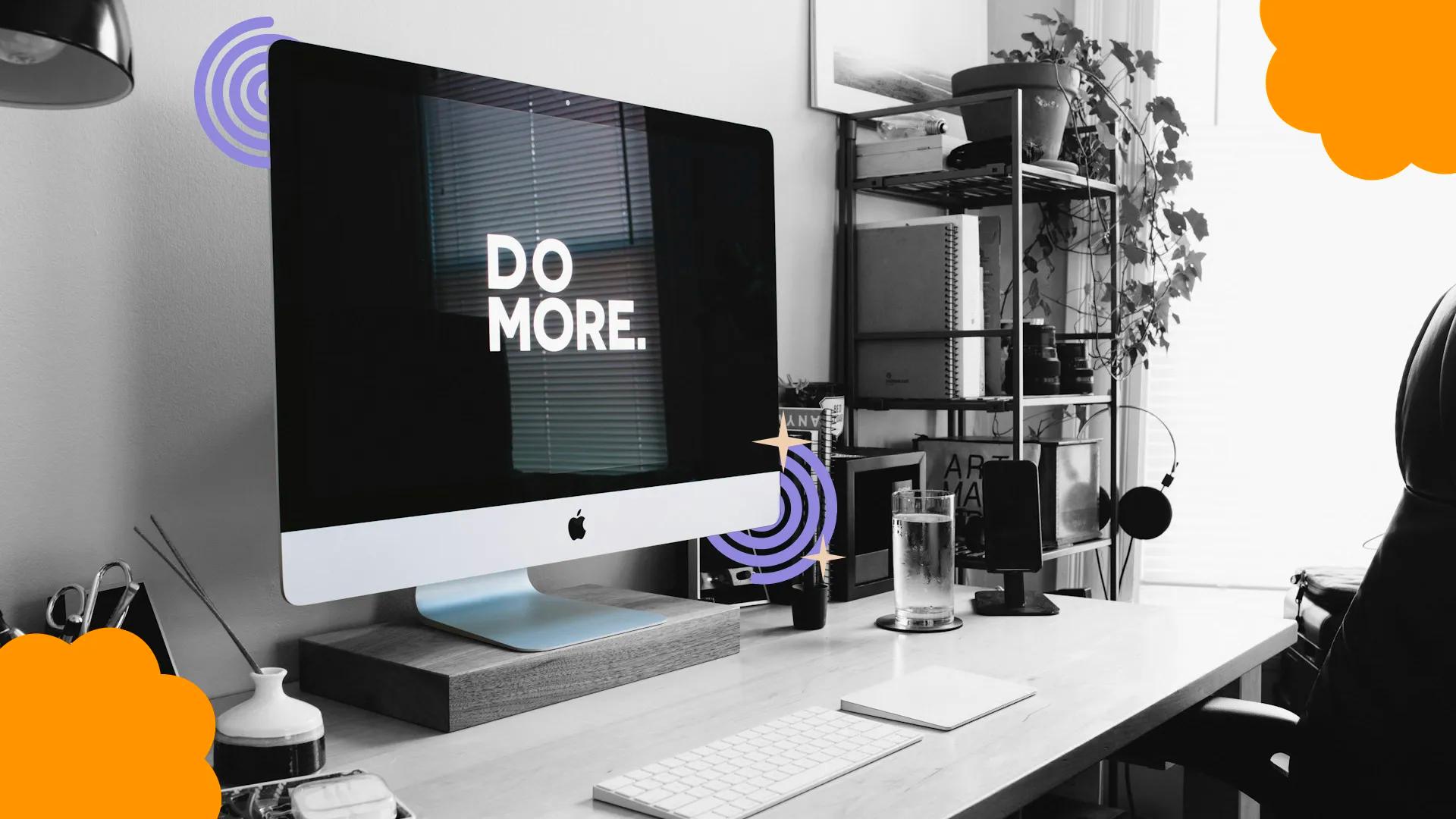In times when smartwatches remind you that you're not being smart enough with your time, and even rest gets planned through an app, it takes an almost revolutionary act to say: I'm going to waste time. But what if we told you that doing so might be the most productive thing you do this week?
Because even though today’s work culture screams output, hustle, efficiency, your brain whispers, please, a break. And you’d be wise to listen.
The Modern Cult of Productivity
We live in an age where working "a lot" is no longer enough. Now you have to work constantly—with purpose, passion, metrics, and ideally with a smile for LinkedIn. Work has shifted from merely subsistence to a form of identity. We are what we produce. And if you're not producing, are you really existing?
This phenomenon isn't accidental. It's the result of decades of economic, cultural, and technological transformations that have, paradoxically, reinforced an outdated logic: more hours worked equals greater personal worth.
As we transitioned from the 20th to the 21st century, we moved from industrial work ethics (factory routines, unions, rights to rest) to digital industry logic: startups, flexibility, innovation, "be your own boss." The promised freedom turned into self-exploitation. With no visible bosses, we became our own taskmasters—rewarding ourselves with coffee and punishing ourselves with guilt, effectively gamifying burnout.
From the Factory to the Feed
Social media platforms like LinkedIn amplified this model, constantly showcasing achievements: promotions, side projects, productivity marathons, intensive courses—documented with filters and inspirational quotes.
While some proudly announce waking at 5 am to meditate, run, read, and launch a fintech before breakfast, others feel guilty for sleeping eight straight hours.
Interestingly, this productivity cult isn't confined to Silicon Valley. In China, the infamous 996 schedule (9 am to 9 pm, 6 days a week) became institutionalized, sparking the cultural pushback movement known as "tang ping," or "lying flat," where young professionals reject career climbing in favor of minimalist lifestyles as resistance.
In the U.S., hustle culture narratives were reinforced by figures like Elon Musk and Gary Vaynerchuk, glorifying personal sacrifice as the path to success—sleeping in offices, answering emails at 2 am, holding multiple jobs, all in the name of the grind.
And What About Latin America?
Despite differing economic contexts, this logic also permeates Latin America, especially in tech. In Argentina, Mexico, Colombia, and Brazil, more people work for global companies with 24/7 cultures, different time zones but identical expectations of constant availability. Slack, Zoom, and Google Calendar create an illusion of perpetual presence, even without physical offices.
This new paradigm causes double strain: physical from long hours seated, and emotional from overexertion and mental overload.
Are We Working or Performing Work?
Sociologist Zygmunt Bauman spoke of how identities in liquid modernity constantly build and rebuild. Work isn't just activity—it's performance. We must appear busy, deliver results, update professional profiles, and build personal brands. Even rest is "active": purposeful yoga, networking trips, hobbies monetized on Etsy.
Simply put, it's no longer enough just to work. We must demonstrate that work defines us, a mindset celebrated as progress but ultimately costly.
What Does “Wasting Time” Really Mean?
Your brain, unlike algorithms, knows exactly what to do with that.
The Paradox of Leisure: Do Less, Achieve More
Telling someone that doing less can help you achieve more sounds, in this age of dashboards and deliverables, almost like professional heresy. But it's not magic. Nor is it New Age optimism. It's science, history, and common sense, all rolled into one.
For centuries, leisure time was considered a privilege. In Ancient Greece, "scholé" (from which "school" is derived) didn't mean work or obligation, but rather free time to think, contemplate, and learn. In that sense, leisure time wasn't the opposite of work, as that was essentially its origin. It was what allowed people to develop, debate ideas, and create. Even great philosophers like Aristotle believed that a dignified life required free time to cultivate thought.
But that view eventually fell apart. With the Industrial Revolution and then the arrival of modern capitalism, leisure time ceased to be a virtue and began to be seen as a threat to efficiency. Thus was born the idea that all untapped time is wasted time.
The Brain Needs Not to Do
Today we know that the human brain isn't designed to be in "productive mode" all the time. In fact, when you rest, it doesn't shut down; it resets itself.
Neuroscientists like Marcus Raichle have studied what's known as the Default Mode Network, a set of brain regions that activate when you're not focused on a specific task, but rather when you're distracted, bored, or when your mind wanders. During these moments, your brain processes memories, connects ideas, simulates future scenarios, and solves problems in the background. It's, literally, a natural creativity algorithm.
The Best Ideas Don’t Arrive by Email
The funny thing is that the best ideas—the ones that really excite you—rarely show up while you're buried in emails or building a roadmap.
There’s a reason many people say their best ideas come in the shower, while walking, cooking, or even washing dishes. Those “low-pressure” moments create the perfect conditions for lateral thinking, emotional memory, and intuition to merge.
Einstein, for example, said creativity is intelligence having fun. And he knew it well: many of his most revolutionary ideas didn’t come from the chalkboard but from daydreaming sessions where he let his mind wander freely.
Productivity ≠ Hurry
In the workplace, we often confuse productivity with speed. But being productive isn’t about doing more in less time—it’s about doing the right things, investing the proper resources and focus. In fact, doing more and faster usually backfires.
That’s why leisure isn’t a luxury—it’s a strategic tool.
And big companies and leaders are starting to understand it. Google, for example, implemented for years its famous "20% Time" program, which allowed employees to dedicate one day a week to personal or experimental projects. The result? Products like Gmail and Google Maps came out of it.
The paradox is clear: when you free time from productive control, ideas stuck in a mental bottleneck can finally surface.
It’s important to always remember that leisure isn’t laziness—it’s mental nutrition. Unfortunately, we’ve created a cultural narrative where leisure is synonymous with laziness. If you rest, you’re unambitious. If you’re bored, you’re uninteresting. If you’re not doing something visible, it seems like you’re worth nothing.
But that narrative is conceptually flawed. Leisure isn’t a void—it’s fertile ground. A place where imagination, empathy, and genuine desire to create can grow. And when that’s nurtured, work gets better, richer, more human.
Because it’s not just about working more—it’s about working better. And sometimes, the best task you can put in ClickUp is to pause for a bit.
Mental Health: The True Engine of Performance
For years, the corporate world treated mental health like a footnote. Something mentioned once a year, with a couple of posters in the office or a motivational talk from HR. But the pandemic, which blew the lid off a bunch of uncomfortable truths no one talked about at work, brought the topic to the center: you can't sustain performance if your nervous system is collapsing.
Mental health is no longer a “bonus” or a “personal matter” solved with yoga and a good attitude. It’s directly the most strategic resource we have to sustain our work and our lives.
Burnout: The Invisible Enemy of the 21st Century
In 2019, even before the pandemic, the WHO recognized burnout as a phenomenon associated with chronic workplace stress. Since then, reports have skyrocketed. Especially in tech, where immediacy culture, impossible deadlines, and the “rockstar developer” ideal still reign, emotional exhaustion is not only frequent—it’s normalized.
Poor sleep, irritability, lack of focus, feeling disconnected from your work—all of that is seen as “part of the job.” And that’s the problem: what should be a red flag is interpreted as a sign of commitment.
But the body doesn’t lie. When you’re maxed out, you don’t think well. You don’t make good decisions. You don’t create well. What comes out of that is forced output, not quality. And long-term? It’s unsustainable.
Wasting Time as an Act of Self-Care
Here’s where the value of wasting time comes in. Because in an environment that demands you to always be connected, constantly producing, and have everything under control, allowing yourself to unplug without guilt is a radical act of care. It’s a way of telling your nervous system: "we’re not at war—you can let your guard down."
And that has real effects: stress drops, cortisol levels regulate, and your body begins to exit the constant "fight or flight" mode it’s stuck in most of the day. That’s when flow shows up—that mental state where ideas flow, tasks feel enjoyable, and time stops being the enemy.
Companies That Care, People Who Perform
More and more organizations are realizing there’s no innovation if people are broken inside. The companies truly committed to well-being don’t just offer “wellness benefits”—they build cultures that respect human limits: reasonable hours, the right to disconnect, real breaks, fewer unnecessary meetings, and more trust in autonomy.
And it’s not just an ethical issue—it’s smart business. Because a well-rested, emotionally stable, mentally present person performs better, gets sick less, and collaborates more.
In other words: protecting mental health doesn’t slow down the company—it fuels the engine that keeps it moving.
The Trap of Romanticizing Sacrifice
Maybe the hardest thing is dismantling the heroic idea of sacrifice. That myth that the more you push yourself, the more you're worth. But heads up: we’re not more valuable for being on the brink of collapse. You’re not a better professional for replying to messages at 2 am or for saying you’re constantly “putting out fires.”
What really takes courage today is learning to stop. Knowing how to say, “this is where I draw the line.”
"But I’ve Got Deadlines": How to Waste Time Without Losing Your Mind (or Your Job)
You don’t need to move to a cabin with no wifi or do a 6-month digital detox. By adopting small practices, you can start reclaiming your lost moments. Here are some not-so-corporate-sounding ideas that actually work:
- Phone-free walks: Go out for 20 minutes with no podcast, no emails, no map. Just you and your thoughts.
- Creative naps: A quick rest after lunch can make you more useful at 4 p.m. than two coffees and a granola bar.
- Meeting-free days: Organize your schedule to have at least one long block without interruptions. Defend it like it’s the World Cup final.
- Leave room for boredom: Don’t fill every free moment with content. Boredom is fertile ground for new ideas.
- Redefine your breaks: Instead of scrolling TikTok, try sitting still and breathing. Your nervous system will thank you.
Conclusion: Stop Running to Be Able to Move Forward
Wasting time—that act we’ve been so thoroughly trained to avoid—is not a threat to your productivity. It’s a strategy. A way to return to yourself. To listen to your body, give your mind some air, and reconnect with the “why” behind what you do.
In a world that pushes you to keep moving, pausing is an act of clarity—and of rebellion. Because we didn’t come to this planet to fill calendars. We came to live lives that matter. And that includes working with purpose, yes—but also getting bored, resting, laughing without an agenda, and letting your mind wander.
So the next time you feel like you’re "wasting time," ask yourself if you’re not actually gaining something more valuable: clarity, calm, energy. Maybe even a brilliant idea that didn’t fit into your Google Calendar.
And if you need a mantra to wrap up this read, here’s a simple one: you’re not a machine. You’re human. And that, even if we sometimes forget, is reason enough to give yourself a break.



